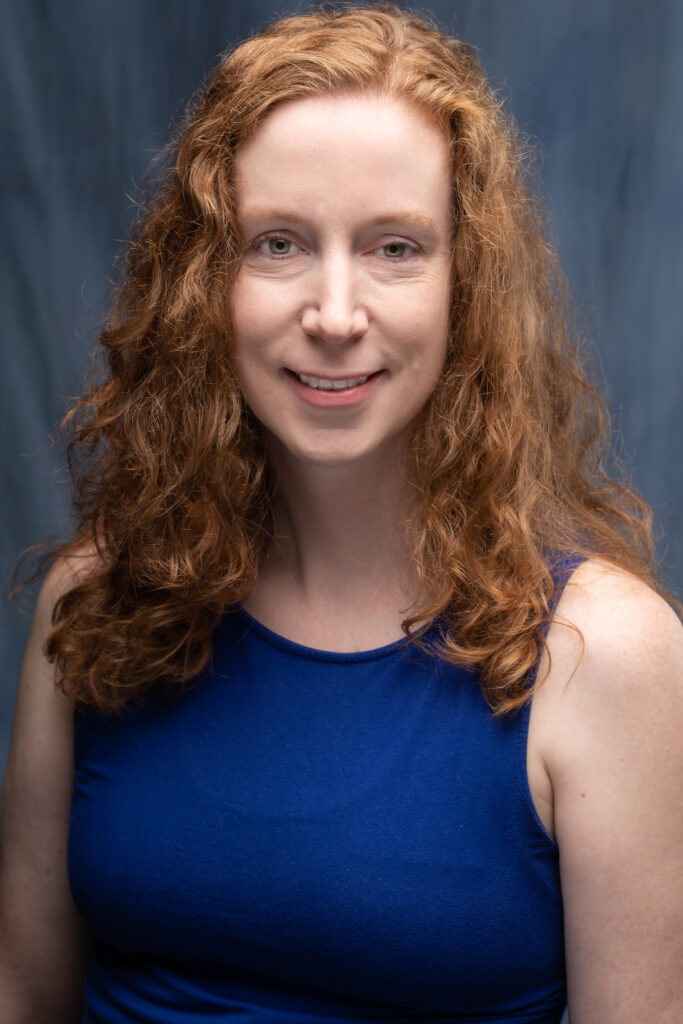
Sign up for a new account.
And get access to
The latest T1D content
Research that matters
Our daily questions
Sign up by entering your info below.
Reset Your Password
Don't worry.
We will email you instructions to reset your
password.
Laura Jacobsen, MD, is an Assistant Professor and Pediatric Endocrinologist at the University of Florida Department of Pediatrics and Associate Program Director for the Pediatric Endocrinology Fellowship Program at the University of Florida.
Dr. Jacobsen is an investigator and has interdisciplinary collaborations with TrialNet, The Environmental Determinants of Diabetes in the Young Study (TEDDY), the Human Islet Research Network (HIRN), and the Network for Pancreatic Organ Donors with Diabetes (nPOD).
In addition, Jacobsen actively participates in scholarly writing groups associated with the American Diabetes Association (ADA) and the International Society for Pediatric and Adolescent Diabetes (ISPAD), as well as outreach and scientific advancement efforts with JDRF, Children with Diabetes (CWD), and the Florida Diabetes Camp.
Interview with Laura Jacobsen, MD
 In this interview, Jacobsen discusses her involvement with the T1D Exchange Quality Improvement Collaborative (T1DX-QI) as an endocrinologist and researcher, performing clinical and translational T1D research to slow and prevent the development of T1D. With over 50 peer-reviewed publications, Jacobsen is an influential researcher in the diabetes space.
In this interview, Jacobsen discusses her involvement with the T1D Exchange Quality Improvement Collaborative (T1DX-QI) as an endocrinologist and researcher, performing clinical and translational T1D research to slow and prevent the development of T1D. With over 50 peer-reviewed publications, Jacobsen is an influential researcher in the diabetes space.
The T1DX-QI was established in 2016 — with the support of The Leona M. and Harry B. Helmsley Charitable Trust — to refine best practices and improve the quality of care and outcomes for individuals living with Type 1 diabetes (T1D). Growth has been tremendous, with 60 endocrine clinics from across the U.S. participating in the Collaborative.
Fueled by top leaders in diabetes care, the T1DX-QI has become an engine of innovation and inspiration. By engaging with the shared, data-driven, and systematic methods of the T1DX-QI, clinics have seen unprecedented success in their approach to diabetes management.
With members working closely to identify gaps in care, discover and refine best practices, and share research — the process has become knowledge-sharing at its very best. While collated data gives clinics a clear sense of “where they are,” it also demonstrates “where they can be” by applying shared, evidence-based methods for improving care.
Jacobsen’s path to medicine
“While I was initially interested in anesthesia, as my mom’s a nurse anesthetist, I fell in love with endocrinology at diabetes camp,” explained Jacobsen on her passion for endocrinology.

“When I was an undergrad and beginning to think about medical school, there was a volunteer opportunity at a diabetes camp associated with the University of Florida,” she added. “After I arrived, I knew almost immediately that I wanted to be a pediatric endocrinologist.”
Jacobsen, who enjoys the human side of medicine, continues to volunteer at diabetes camp — a decade later — and as a pediatric endocrinologist.
What do you enjoy most about being a physician?
“I love getting to know patients on a more personal level — when afforded the time and space — having back-and-forth conversations about school, sports, or other things they’re enjoying,” said Jacobsen.
“As a clinician, it’s important to understand the experience people are having while living their lives with diabetes,” said Jacobsen.
“Because I’m doing 80 percent research now, I can spend an hour-and-a-half with a patient participating in a trial,” explained Jacobsen. “If I have a participant that’s never heard of glucagon, for example, we sit down and talk about it. This is especially important when participants outside our clinical sphere, from potentially under-resourced areas, come to us for a trial. It’s pretty wonderful to be afforded this type of time with patients.”
University of Florida and T1DX-QI
The University of Florida became involved in the secondary wave of the T1DX-QI, in about 2017, explained Jacobsen, who serves as the site PI at the University of Florida. “At the time, Anastasia Albanese-O’Neill, Ph.D., ARNP, was part of our diabetes team and our primary lead into the Collaborative.”
“We’re still in the building stages of our endocrinology QI program at the University of Florida. Right now, we have a very small QI team, i.e., ‘me,’” said Jacobsen with a chuckle. “So, I tend to focus on one project at a time. Other QI programs may have more support because they’ve been developed in that manner — and they’re really something to emulate.”
“We’re all working towards similar goals, and with data mapping, it allows for benchmarking — or seeing how we’re doing as an institution in comparison with others. While there’s always room for improvement, I’m happy with how well our clinic is performing overall.”
“In terms of what I like most, I’d have to say it’s the targeted QI work I do in conjunction with the Collaborative — and the measurable effects it’s having on the engagement of our patients,” said Jacobsen.
“Since joining the T1DX-QI, we’ve increased depression screening uptake in our diabetes clinic while simultaneously making improvements to MyChart for patient portal access.”
As a T1D researcher, Jacobsen’s work with the Collaborative continues to complement other aspects, such as developing JDRF’s monitoring guidelines for identifying and following autoantibody-positive individuals.
Finally, Jacobsen continues to work diligently on developing a transition of care program at the University of Florida.
“While we’ve had previous attempts to improve the transition from pediatric to adult care, they haven’t been maintained. Right now, I’m slowly and purposefully restructuring our program to support our patients as they age out of pediatric care.”
Let’s talk about the T1D Screening Project
“Carla DeMeterco-Berggren, MD, PhD, from Rady Children’s Hospital in California, and I were asked to join an 18-month project to develop an implementation protocol for autoantibody screening at T1DX-QI sites,” said Jacobsen.
“The University of Florida was selected because we have an established autoantibody screening program through TrialNet, and we’re a prolific screening center,” said Jacobsen. “Rady does not have a screening program in place quite yet, so we’re representing both ends of the spectrum.”
“For this project, we’re trying to approach screening through the practical lens of an endocrinologist,” added Jacobsen. In other words, thinking through billing, documentation, data extraction, and analysis — while making sure the process is equitable — which is an expertise of the T1DX-QI.
“Implementing screening protocols is a high priority because we have a therapy to delay onset of T1D now,” explained Jacobsen.
“That said, we do understand testing can cause feelings of anxiety. However, by creating awareness of T1D and its symptoms and having the person in front of us multiple times, we hope to prevent instances of life-threatening DKA.”
How did you become proficient in American Sign Language (ASL)?
Jacobsen’s experience of becoming fluent in ASL stems from her childhood.
“When I was in high school, there were two siblings in my school who were deaf. Initially, I saw them signing with an interpreter and later on the school bus, as they lived in my neighborhood. I ended up writing them notes because sign language was fascinating to me.”
“We went on to start a sign language club in high school and remain friends to this day. And, one of the reasons I came to the University of Florida, as opposed to other schools, was the sign language program,” explained Jacobsen, who went on to receive a minor in ASL at the University of Florida.
“At this point, I’m conversational, but, unfortunately, not a certified interpreter,” said Jacobsen.
What’s next?
“One of the next upcoming projects for our clinic is to increase insulin pump use in our minority populations. While we have excellent continuous glucose monitoring uptake, that’s one of the highest in the Collaborative, our pump uptake isn’t as strong,” said Jacobsen. “There’s room for some cleanup work in our pump data set as well.”
“Again, I’m excited to be a part of the T1DX-QI Antibody Screening Project and collecting at-risk data to set the groundwork for screening programs at other institutions,” said Jacobsen.
Outside of work
When Jacobsen isn’t at work, you will likely find her crocheting, playing soccer, or planning her next adventure to a National Park.







